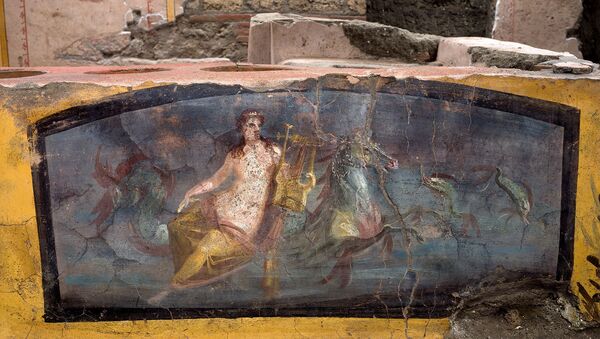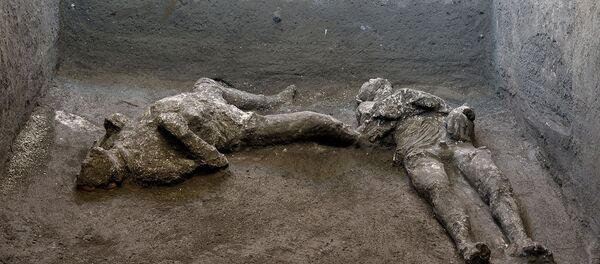A team of archaeologists has unveiled a perfectly preserved thermopolium, an Ancient Roman analogue of modern-day street food joints, in Pompeii, still decorated with colorful rich frescoes and graffiti, the Archaeological Park of Pompeii stated on Saturday.
A thermopolium was a place where hot food and wine were served to the city's dwellers, and the archaeologists hope this discovery will shed light on their gastronomic habits.
Most interesting is that the counter of the eatery, dubbed a "snack bar" by the archaeologists, is decorated with an image of a Nereid riding a sea-horse, still intact, with drawings of two ducks shown upside down, ready to be cooked, along with a rooster and a dog on a leash. The frame of the dog painting seemingly contains a mocking inscription, and the scientists reportedly believe that it was likely addressed to an owner or an employee of the establishment.
🔴 𝗜𝗠𝗣𝗥𝗘𝗦𝗦𝗜𝗢𝗡𝗡𝗔𝗡𝗧𝗘 𝗗𝗘𝗖𝗢𝗨𝗩𝗘𝗥𝗧𝗘 😮 | #Pompei ne cessera de nous surprendre ! Un thermopolium, lieu de restauration rapide de la Rome Antique, vient d'être découvert sur le site, recouvert par les cendres lors de l'éruption du Vésuve en 79 de notre ère. 🗻 pic.twitter.com/R0EykVDj9a
— Secrets d'Histoire (@secretshistoire) December 26, 2020
"As well as being another insight into daily life at Pompeii, the possibilities for study of this Thermopolium are exceptional, because for the first time an area of this type has been excavated in its entirety, and it has been possible to carry out all the analyses that today’s technology permits,” Massimo Osanna, Interim Director General of the Archaeological Park of Pompeii, said in a statement.
Archaeologists also discovered several wine flasks, a decorated bronze drinking bowl, ceramic jars used for cooking soup and an amphora used for storing or transporting liquids.
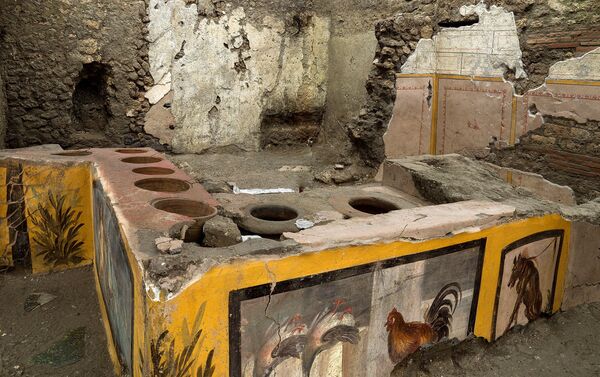
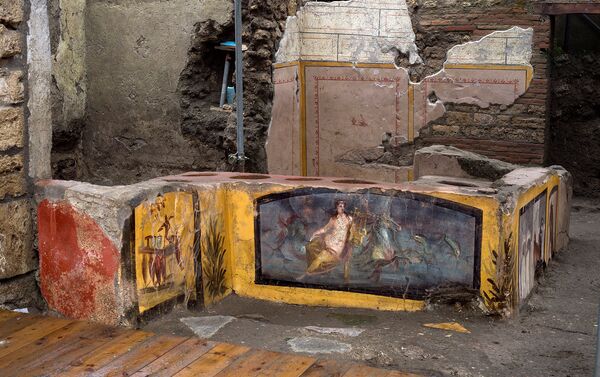
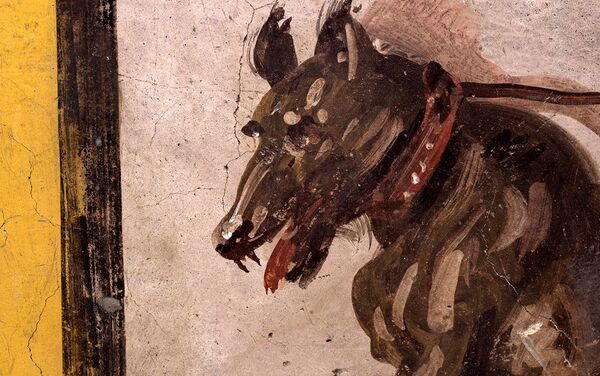
They also found human bones near the thermopolium, some of which belong to a man of about 50 years of age.
The excavations have been conducted since 2019 under the framework of the Great Pompeii Project, aimed at the preservation of the city's cultural heritage.
The city and a large number of its citizens were buried under the ash from the Vesuvius volcano eruption until it was discovered in the 16th century, while the real archaeological excavations started in the mid-18th century.
